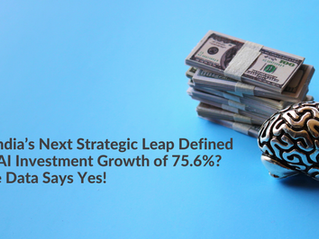Are You Unlocking the Full Power of Decarbonization Consulting? A Strategic Perspective with AgileIntel
- AgileIntel Editorial

- Nov 11, 2025
- 4 min read

In today’s dynamic business environment, organisations are confronted with a defining imperative: decarbonisation must be integrated as a strategic business priority. With regulatory frameworks tightening, investor expectations evolving, and customers increasingly favouring environmentally responsible supply chains, companies must advance beyond ambition to measurable action. Consulting-led decarbonisation strategies provide the structured, data-driven pathways that enterprises require to translate carbon-reduction goals into tangible operational and financial outcomes.
The business case for decarbonisation
Decarbonisation is no longer purely a matter of compliance or brand positioning. According to a 2024 survey by the Boston Consulting Group (BCG) in collaboration with CO2 AI, only 11% of nearly 1,900 companies reported achieving emission reductions aligned with their ambitions. Yet, the same survey shows that 25% of these companies achieved net annual benefits equal to more than 7% of revenue, averaging around US$200 million. Key sources of benefit include operating-cost reduction stemming from energy-efficiency improvements, waste minimisation, and increased renewable-energy adoption.
Research by Capgemini, in collaboration with CDP, revealed that only 37% of Scope 3 emissions, which are indirect emissions occurring within a company’s value chain, are currently addressed by decarbonization measures among European businesses. This highlights both a significant challenge and opportunity, as value-chain emissions remain a material risk while offering latent value when addressed strategically. These findings underscore a pivotal insight: decarbonisation is a strategic lever for cost management, risk mitigation, and business transformation.
The role of consulting in the decarbonisation journey
Many organisations recognise the imperative to reduce emissions, yet struggle to define the most effective path. Consulting-led decarbonization strategies deliver distinctive value by combining analytical rigour, industry-specific insight, and change management discipline. Key consulting interventions include:
1. Emissions baseline, data integrity, and transparency
Establishing a reliable baseline of emissions across Scopes 1, 2, and 3, along with embedding transparency, is fundamental. Companies that measure all three scopes comprehensively are 1.6 times more likely to realise significant decarbonisation benefits. Consulting firms guide organisations through baseline inventory design, data collection workflows, emission factor mapping, and governance frameworks, ensuring a robust foundation for strategy development.
2. Strategic lever identification and prioritisation
Not all reduction opportunities are equal in impact or cost-effectiveness. Consulting teams often deploy Marginal Abatement Cost Curves (MACCs) or equivalent frameworks to evaluate emissions-reduction levers across the organisation, including electrification, process optimisation, fuel substitution, circular economy initiatives, and supply chain collaboration. The objective is to quantify abatement potential per dollar spent, prioritise high-impact actions, and produce a strategic roadmap aligned to business objectives.
3. Implementation roadmap and organisational embedding
Knowing the levers is only part of the journey. Consulting partners develop a phased implementation roadmap, align stakeholders from the C-suite to operational teams, establish performance KPIs, and implement governance and reporting systems. This ensures that the decarbonisation strategy is integrated into operational routines, rather than being confined to sustainability teams.
4. Financing and business-case development
Many decarbonization initiatives require significant investment, whether in the adoption of renewable energy sources, material recycling systems, or redesigning the value chain. Consulting support includes business case modelling, financing strategy, and incentive identification. Companies report that more than half of their footprint reduction potential can be achieved at net cost savings of 10 to 40%. Consulting partners help structure investment scenarios, identify external funding, and link decarbonization to broader business-case drivers, including operational savings, asset lifetime extension, and reputational benefits.
Benefits and strategic outcomes
An effectively executed decarbonisation strategy delivers several interrelated benefits:
Operational cost savings: Efficiency improvements in energy and materials can have a material impact on the bottom line.
Risk Mitigation and Resilience: Robust baselining and transparent reporting reduce regulatory, reputational, and supply chain risks.
Competitive differentiation: Early movers in decarbonization gain access to sustainability-focused capital, strengthen customer trust, and secure supply chain advantages.
Business transformation and growth: Decarbonisation can drive innovation in product design, open new markets, and support long-term business model evolution.
Critical success factors
For consulting-led decarbonisation strategies to succeed, organisations should focus on:
Data governance and integrity: High-quality emissions data is essential for operationalising strategy. Siemens Smart Infrastructure reports that 44% of organisations lacked plant or machinery performance data, and 30% lacked energy-consumption data.
Executive alignment and accountability: Sustainability objectives must cascade into business-unit KPIs.
Supply-chain and value-chain engagement: Addressing Scope 3 emissions requires collaboration with suppliers and partners.
Prioritisation of high-impact initiatives: Resources should focus on levers that deliver meaningful results quickly.
Change management and capability building: Technical solutions must be complemented by process integration and workforce capability development.
Continuous monitoring, reporting, and iteration: Companies must establish dashboards, validate results, and refine strategies as regulations and market expectations evolve.
Conclusion: Turning Consulting Excellence into Climate Impact
For organisations that regard decarbonisation as a strategic imperative, consulting provides a disciplined, scalable, and business-aligned approach to turning ambition into measurable outcomes. Evidence demonstrates that companies excelling in data-driven planning and advanced abatement levers are significantly more likely to realise cost and emissions benefits along a 1.5°C trajectory.
In today’s business landscape, where the cost of inaction is rising and the benefits of proactive action are becoming increasingly visible, a well-designed decarbonization strategy is not only an environmental initiative but also a strategic business transformation lever.
For enterprises ready to lead the next phase of climate action, investing in proven decarbonization partners is essential. AgileIntel’s consultancy offers tailored decarbonization strategies, combining sectoral expertise and data-driven insights to help organisations accelerate their climate impact, unlocking sustained business value in a rapidly evolving market.







Comments